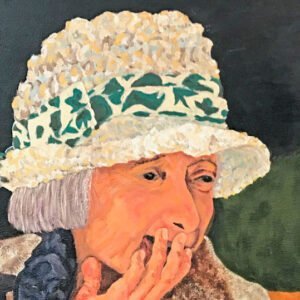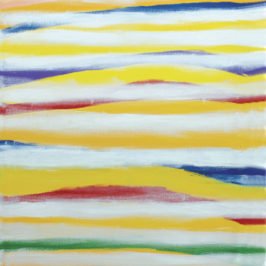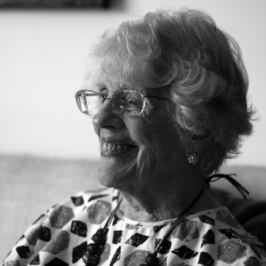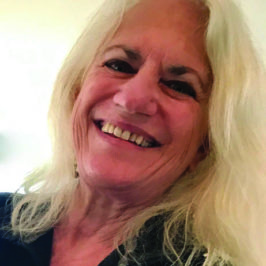
Mother’s Day
Four poems paying tribute to our mothers, by Wilderness Sarchild, Mary Lou Rife, Diana Morley and Ilene Millman.
6 minutes | Transcript
TRANSCRIPT
It’s that Mother’s Day time of year, a time when we think about and pay tribute to our mothers. Not all of those tributes, though, are goopy greeting card sentiments.
Here’s Wilderness Sarchild’s poem “Visitation” from her book Old Women Talking.
In my dream
I feel her spirit hand
combing
through my hair,
comforting as a lullaby.
How does she know
that I still need
to be cradled
through the night
by the one
who carried me
in her womb
over sixty years ago?
“Visitation.” Wilderness Sarchild. Passager published Wilderness’s book Old Women Talking in 2017.
Next, two poems that wonder how mothers felt about their lives.
Mary Lou Rife said she often pictures her mother in her kitchen packing lunches, busy at the stove, finding great joy in listening to the stories and music of the radio, often singing along in a pure soprano voice. She said she always wondered if her mother had fantasies of a more glamorous life than as housewife and mother of four in a small mill town, taking care of a grumpy mother-in-law. Here’s her poem “Radio Waves.”
It’s 8 a.m. and the turquoise Zenith
tuned in to 1020 KDKA on a white shelf,
next to the humming GE fridge,
rings out the good-to-the-last-drop jingle,
assuring us that Maxwell House
is the morning beverage of choice.
A big band strikes up a chord, an alto sax
interrupts the hush fogging the kitchen
after Dad leaves with his aluminum lunch bucket,
and Mom feels a bit piqued with her mother-in-law,
who waits for her oatmeal with raisins in silence
before returning to her room
to mumble her prayers for the dead.
By 9:30, Arthur Godfrey is strumming his ukelele,
my mother crooning with Perry Como’s
“Round and Round,” and soon
she’s stomping on the thin blue linoleum
with the “toot-de-toot” chorus of Julius LaRosa’s
Eh, Cumpari, bumping the ironing board
piled with wrinkled shirts and pants.
The mint green phone on the wall rings;
Annie from next door is bringing over her Chesterfields
to blow smoke rings over a cup of black coffee,
grumbling about her “no-good, never-working” husband,
while my mother nimbly shifts the focus
to the three Andrews Sisters
harmonizing in the background.
As dusk approaches, close to dinner time,
after peeling potatoes and onions,
putting the meatloaf in the oven,
Mom follows the clues of Joe Friday and Johnny Dollar
wondering if these charming, impatient investigators,
with their baritone sureness, had wives.
Mary Lou Rife’s poem “Radio Waves” from Passager Issue 68. Mary Lou teaches creative writing and poetry to homeless women in DC.
Diana Morley said she regrets the fact that so many women of her generation have gotten lost in housework, washing and mopping, instead of spending time at activities of the heart. Here’s her poem “Mark My Words.”
A name and an apron.
It comes down to that.
My name? What I stand behind.
I’m someone —
no one else.
My apron? My shield.
Cordons off the gripping vortex
while filling a top-loading washer.
We women — wiser,
draw new lines of separation —
still cover our mouths
still cover laughing or crying.
A name and an apron
can’t do it all.
Diana Morley’s poem “Mark My Words” from Passager’s 2018 Poetry Contest issue.
Ilene Millman said that bits of information she collect from newspapers, radio, and random conversations often find themselves mixed into the dough of a poem like chocolate chips. She’d been noticing her grandchildren with their heads bent over cellphones, and computers, and when she stumbled across some information about text neck, the cookies practically baked themselves.
“Text Neck” by Ilene Millman.
Sit up straight
my mother said
time & again when
she spotted me — moon-shaped arc
angled over book or yellow pad.
What she meant was:
skeleton and skin,
our bodies accept habitual placement.
She’d be delighted to find
new evidence, pregnant with implication:
plunked
now in existential twilight glowing
from the faces of tiny screens
butts planted,
heads canted forward
we are growing spikes —
like a horn, a hook, a beak,
stalactites at the base of our skulls
just above the neck —
penetration
of technology
leaving a distinctive sign-off?
Eric Fromm said we shape
our tools & then
our tools shape us.
My mother said
to expect something
from yer flesh and senses,
ya need to keep your head up.
“Text Neck.” Ilene Millman, also from Passager Issue 68.
To buy Wilderness Sarchild’s book Old Women Talking, subscribe to or learn more about Passager and its commitment to writers over 50, go to passagerbooks.com. You can download Burning Bright from Spotify, Apple and Google Podcasts, and various other podcast apps.
For Kendra, Mary, Christine, Rosanne, and the rest of the Passager staff, I’m Jon Shorr.
The cover art for this episode is from a painting by Tia Cross titled “The Chat.”






